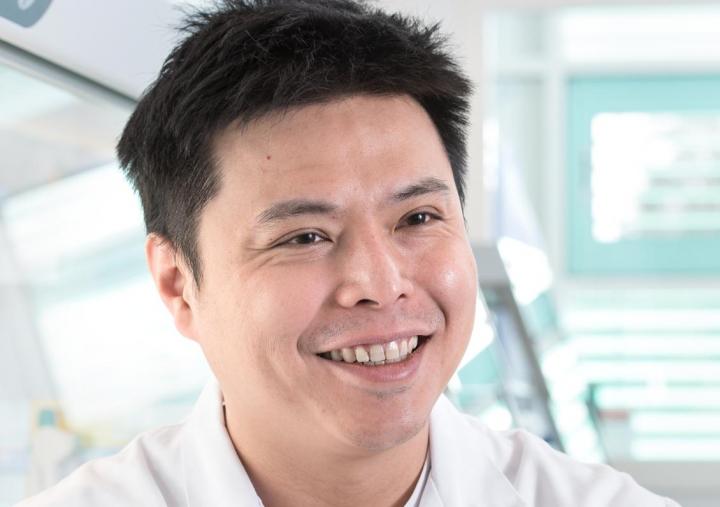
Credit: Ludwig Cancer Research
MAY 24, 2021, NEW YORK – A Ludwig Cancer Research study has discovered how to revive a powerful but functionally inert subset of anti-cancer immune cells that are often found within tumors for cancer therapy.
Led by Ludwig Lausanne’s Ping-Chih Ho and Li Tang of the École Polytechnique Fédérale de Lausanne, the study describes how an immune factor known as interleukin-10 orchestrates the functional revival of “terminally exhausted” tumor-infiltrating T lymphocytes (TILs), which have so far proved impervious to stimulation by immunotherapies. It also demonstrates that the factor, when applied in combination with cell therapies, can eliminate tumors in mouse models of melanoma and colon cancer. The findings are reported in the current issue of Nature Immunology.
“We’ve found, for the first time, that terminally exhausted TILs can be directly rejuvenated so that their potent anti-cancer activity is restored, and that this rejuvenation is accomplished through the metabolic reprogramming of the cells induced by interleukin-10,” said Ho, associate member of the Ludwig Institute for Cancer Research, Lausanne.
Deprived of oxygen and vital nutrients within tumors, the TILs most capable of killing cancer cells are typically pushed into a stubbornly sluggish state known as exhaustion. Recent research has identified two distinct types of exhausted TILs. One, known as “progenitor exhausted” TILs, can recognize cancer cells with nominal efficiency and proliferate in response to the immunotherapy PD-1 blockade. But it is their descendants, “terminally exhausted” TILs, that are best equipped to detect and destroy cancer cells. They are, however, functionally disabled, prone to self-destruction and utterly incapable of proliferation.
“Even PD-1 blockade cannot restore the function of these terminally exhausted TILs,” said Ho. “In fact, many patients do not respond to PD-1 blockade because their tumors lack progenitor exhausted TILs and have only terminally exhausted TILs. This is why researchers are looking for ways to revive terminally exhausted T cells for cancer therapy.”
Three lines of evidence prompted the current study. First, Ho and his team recently showed that terminally exhausted TILs could be functionally revived by restoring the health of their mitochondria–the bean-shaped organelles in cells that generate energy and help regulate metabolism. Second, IL-10 is known to stimulate anti-cancer immune responses and has been tested as a therapy for lung cancer in an early phase clinical trial, albeit with mixed results. Finally, IL-10 was recently found to restore mitochondrial fitness and reprogram the metabolism of immune cells known as macrophages.
Ho and his colleagues wondered whether IL-10 might similarly influence terminally exhausted TILs.
To find out, they added an engineered, long-lived version of IL-10 (IL-10/Fc) to adoptive cell therapy (ACT)–the infusion of tumor-targeting T cells to treat cancer–and tested the combination in a mouse model of melanoma. The treatment boosted the number and functionality of terminally exhausted TILs and led to tumor regression and cures in 90% of treated mice, compared to limited regressions with IL-10/Fc alone and none with ACT alone. Notably, 80% of surviving mice developed an immune memory for the cancer, spontaneously rejecting the same tumors implanted two months after therapy.
“This suggests that if IL-10 is added to ACT, it could confer long-term protection from cancer growth,” said Ho.
The researchers also tested IL-10/Fc on CAR-T cells, which are engineered to target cancer cells bearing specific molecular markers. IL-10/Fc treated CAR-T cells induced complete cures of roughly 90% of mice implanted with colon cancer tumors.
Ho, Tang and colleagues found that IL-10/Fc specifically acts on terminally exhausted TILs, not on progenitor exhausted TILs. They also showed it reprograms the metabolism of terminally exhausted TILs–beginning with the process they employ to extract energy from nutrients. That, in turn, leads to sweeping changes in their gene expression programs, which drives their functional re-activation and proliferation. IL-10/Fc had the same effect on human TILs, and on CAR-T cells as well.
“With IL-10, we reset the energy-generation program of the most exhausted soldiers of the anti-cancer immune response and revived their ability to kill tumor cells,” said Ho.
The researchers are now investigating the precise mechanisms by which metabolic reprogramming alters gene expression patterns in the terminally exhausted TILs. They are also conducting preclinical studies to advance the application of their discoveries to human cancer therapy.
###
Ping-Chih Ho is an Associate Member of the Lausanne Branch of the Ludwig Institute for Cancer Research and an Associate Professor at the University of Lausanne.
This work was supported by Ludwig Cancer Research, the Swiss National Science
Foundation, the ISREC Foundation, the Biltema Foundation, Swiss Cancer League, the European Research Council, Kristian Gerhard Jebsen Foundation, Fondation Pierre Mercier pour la science, École Polytechnique Fédérale de Lausanne, the Swiss Institute for Experimental Cancer Research, the Cancer Research Institute, the Swiss Cancer League, the Chinese Academy of Sciences, the Ministry of Science and Technology of the People’s Republic of China and the Chinese Scholarship Council.
About Ludwig Cancer Research
Ludwig Cancer Research is an international collaborative network of acclaimed scientists that has pioneered cancer research and landmark discovery for 50 years. Ludwig combines basic science with the ability to translate its discoveries and conduct clinical trials to accelerate the development of new cancer diagnostics and therapies. Since 1971, Ludwig has invested nearly $3 billion in life-changing science through the not-for-profit Ludwig Institute for Cancer Research and the six U.S.-based Ludwig Centers. To learn more, visit http://www.
For further information please contact Rachel Reinhardt, [email protected].
Media Contact
Rachel Reinhardt
[email protected]




